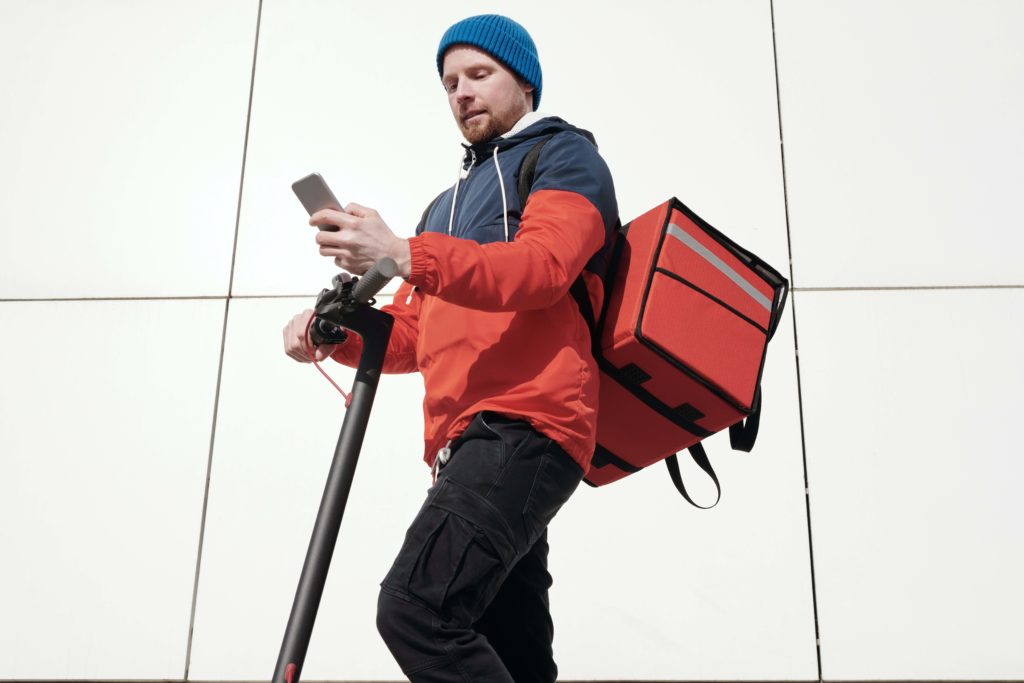Urban Logistics: Definition, Challenges, and Tools

Optimize Your Urban Logistics with SaaS Software. Enhance your operations and customer satisfaction through efficient management. Discover how to address the challenges of urban logistics and achieve operational excellence with our solutions.
- Urban Logistics: Definition
- Urban Logistics: Challenges
- The Impact of Urban Logistics on Customer Satisfaction and Business Profitability
- The Benefits of SaaS Solutions for Urban Logistics
- Key Features of SaaS Software for Urban Logistics
Urban Logistics: Definition
Urban logistics aims to optimize the supply chain within urban areas. How? By taking into account specific constraints such as population density, heavy traffic, and space limitations. Its primary goal is to ensure efficient delivery while minimizing negative impacts on the environment and the quality of urban life. Due to the rise of online commerce and evolving consumer habits, urban logistics has become a significant challenge for businesses. This involves:
- careful planning of delivery routes,
- use of vehicles suitable for urban streets,
- implementation of effective inventory management systems,
- Key Features of SaaS Software for Urban Logistics.
Urban Logistics: Challenges
Urban logistics faces several challenges that are essential to understand in order to optimize transportation and delivery operations.
One of the major challenges of urban logistics is traffic congestion. densely populated cities often deal with traffic jams. This leads to delivery delays and extra costs for businesses. Finding optimized routes and utilizing real-time tracking solutions to avoid congested areas is necessary.
Regulations and restrictions specific to urban areas can complicate logistics. Restricted delivery hours, low-emission zones, and noise requirements are constraints businesses must comply with. It’s important to comprehend local regulations and develop tailored strategies to adhere to these requirements.
The last mile of delivery is often the costliest and most complex in urban environments. Accessing residential areas and densely populated city centers can be challenging. Businesses need to explore solutions, such as:
- bike delivery,
- pickup points,
- automated lockers.
With the rise of e-commerce, managing returns has become a major challenge for urban logistics. Returns often require additional travel, increasing costs and environmental footprint. Establishing efficient return management processes is essential to minimize negative impacts.
Urban logistics must embrace environmental sustainability. Concerns like CO2 emissions, noise pollution, and the use of polluting vehicles need to be addressed. Companies can adopt solutions like electric delivery vehicles, delivery consolidation, and route optimization to reduce their environmental impact.

The Impact of Urban Logistics on Customer Satisfaction and Business Profitability
Effective management of logistics in a complex urban environment can make the difference between a business’s success and failure.
In a dynamic urban environment, customers expect fast and reliable delivery of their orders. Well-organized urban logistics can reduce delivery times by shortening distances and utilizing efficient routes. This contributes to customer satisfaction, providing them with a smooth and timely shopping experience.
Urban areas often face challenges such as traffic congestion, parking restrictions, and environmental regulations. Effective urban logistics takes these constraints into account and implements strategies to overcome them. This may include:
- using appropriate vehicles,
- utilizing alternative delivery solutions such as bikes or drones,
- smart route planning to avoid congested areas.
Urban logistics provides opportunities for customizing the customer experience. With a deep understanding of customer locations, it’s possible to offer flexible delivery options such as:
- home delivery,
- pickup points,
- or secure lockers.
This customization enhances customer satisfaction by providing choices tailored to their needs and schedules.
Well-managed urban logistics also reduces business operational costs. By optimizing delivery routes, minimizing distances traveled, and using order consolidation solutions, companies can achieve significant savings in transportation, storage, and labor costs.
The Benefits of SaaS Solutions for Urban Logistics
SaaS solutions for urban logistics offer exceptional flexibility. They can be tailored to your business’s specific needs and evolve alongside your operations. You can easily add new features or adjust existing capabilities based on fluctuating demands.
With a SaaS solution, you can access your data and manage your logistics operations from anywhere at any time. Through intuitive dashboards and real-time information, you can make informed decisions and quickly respond to changes in the field.
SaaS solutions integrate advanced route optimization features. They allow you to efficiently plan delivery routes, minimize distances traveled, and optimize vehicle usage. This helps you reduce fuel costs, CO2 emissions, and travel times, while enhancing customer satisfaction.
Through SaaS solutions, you can manage your inventory in real-time. You have complete visibility into stock levels, enabling you to forecast and manage supplies more effectively. This helps you avoid stockouts, reduce costs associated with overstocking, and improve delivery accuracy.
SaaS solutions facilitate collaboration among various stakeholders in the urban logistics chain. You can easily share information with carriers, warehouses, suppliers, and customers, enabling more efficient coordination of operations. Improved collaboration translates to shorter delivery times, better issue management, and increased customer satisfaction.

Key Features of SaaS Software for Urban Logistics
SaaS software for urban logistics offers advanced route management features. Utilizing sophisticated algorithms, they optimize delivery routes considering specific urban traffic constraints, such as traffic jams and circulation restrictions.
Real-time visibility is crucial in urban logistics. SaaS software provides real-time tracking tools that allow you to monitor the location of delivery vehicles, anticipate potential delays, and quickly respond to unforeseen events.
Efficient inventory management is essential to ensure fast and accurate deliveries in urban environments. SaaS software offers inventory management functionalities that allow real-time tracking of stock levels, order management, and forecasting future needs based on demand.
Route planning is a key element of urban logistics. SaaS software offers advanced route planning features that optimize the allocation of vehicles to different delivery zones. They consider capacity constraints, delivery deadlines, and specific customer requirements.
SaaS software for urban logistics provides the capability to easily integrate with external partners such as carriers, warehouses, and logistics service providers. This integration facilitates collaboration and coordination of logistics operations, ensuring smooth execution of deliveries in urban environments.
Nomadia offers a SaaS solution to enhance your urban logistics
